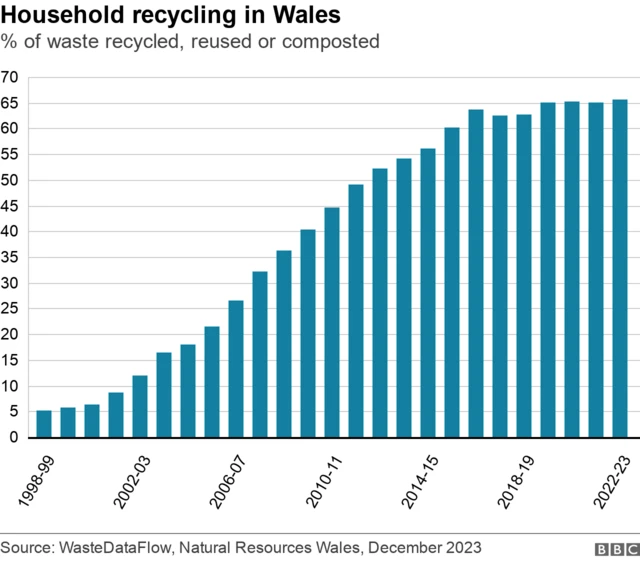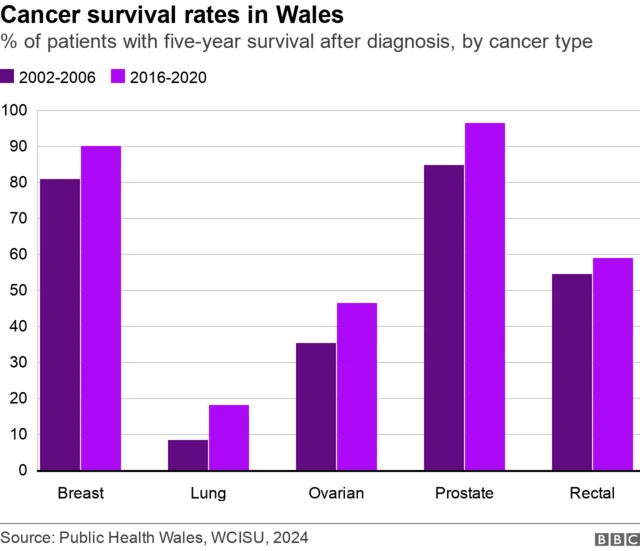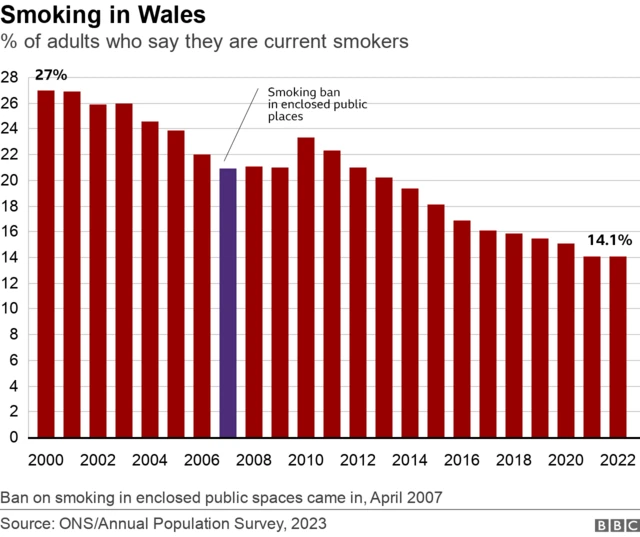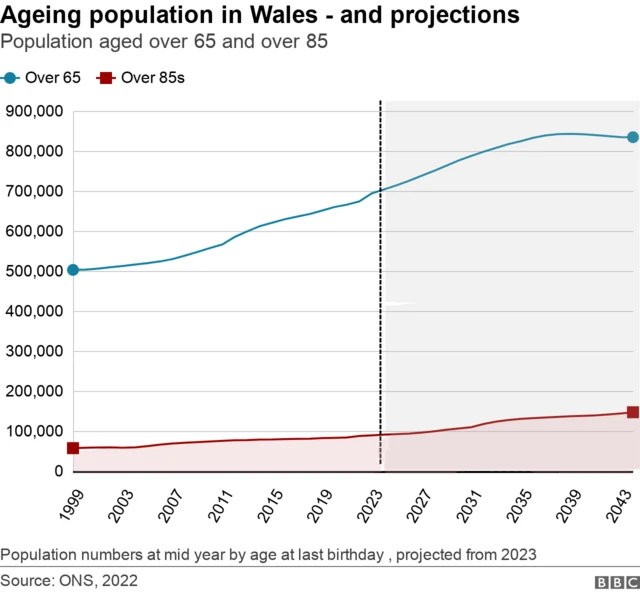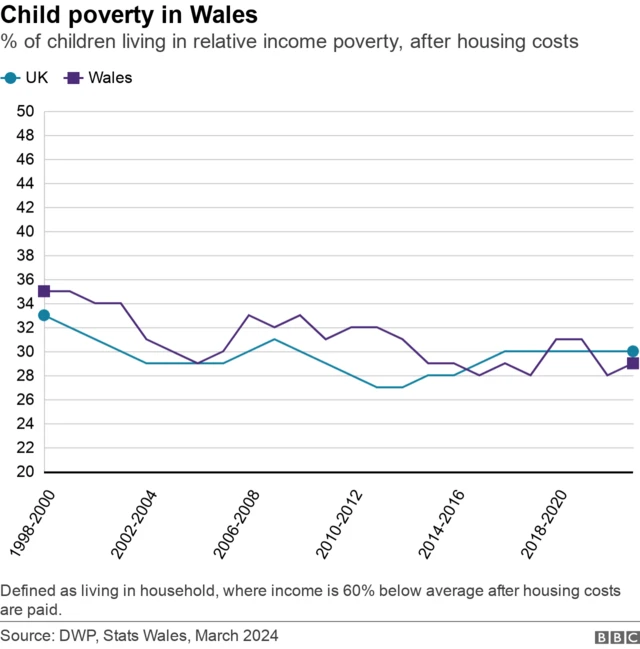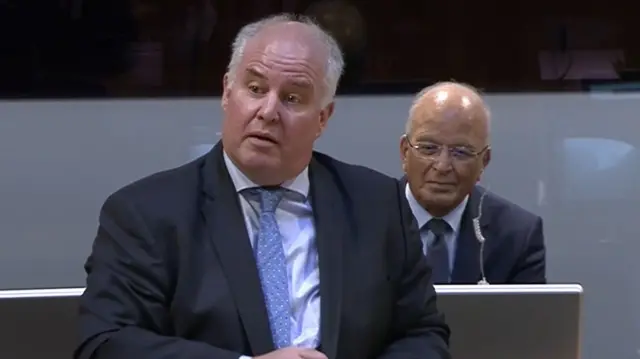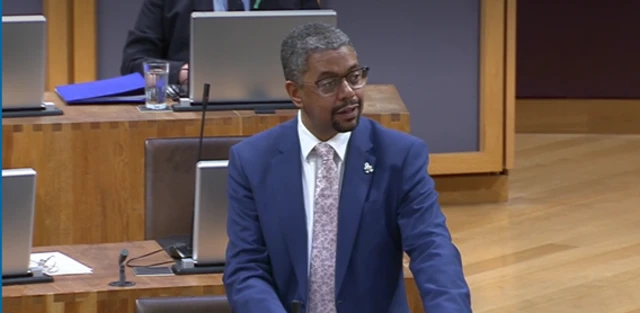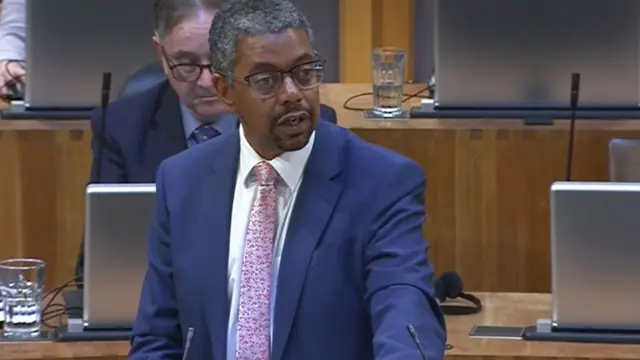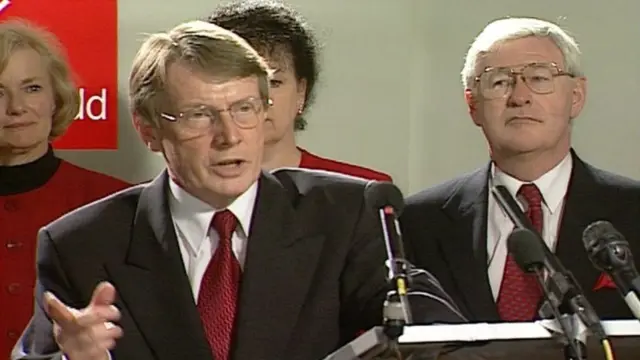How are school children performing in Wales?published at 16:54 BST 7 May 2024
Steve Duffy
BBC Wales
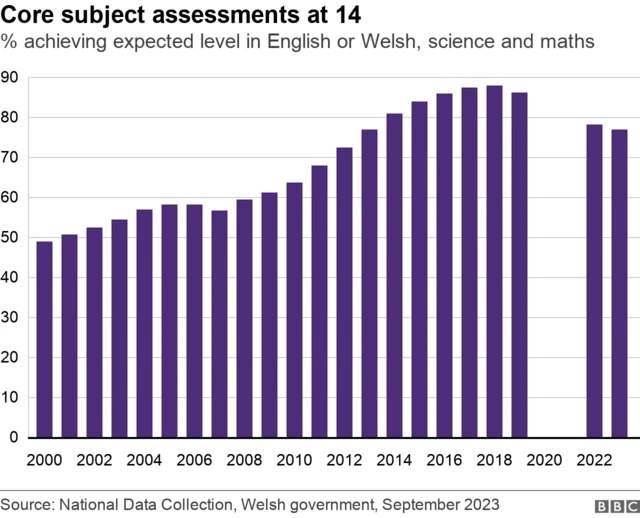
Future generations is a big thing among Welsh ministers but how is the Wales of tomorrow doing in school?
Classroom assessments of 14-year-olds in Wales in core subjects such as English or Welsh, maths and science saw an increase in pupils achieving the expected level for every year between 2007 and 2018.
But there’s been a fall since then and the disruption from Covid is seen as a partial reason.
Fewer boys have consistently met the mark, compared to girls. And the gap between pupils from more deprived backgrounds and those from least deprived households was smaller before Covid.
Meanwhile, for most of the devolution era, the Pisa international tests for 15-year-olds have been running – and the 2022 results were the worst so far in Wales.
The performance was blamed by ministers on the pandemic “derailing” some improvements in literacy and numeracy.
The entry rate for 18 and 19-year-olds from Wales going into higher education has been fairly consistent over the period and stands at around 30%, dropping to a low of around 25% between 2006 and 2010.

